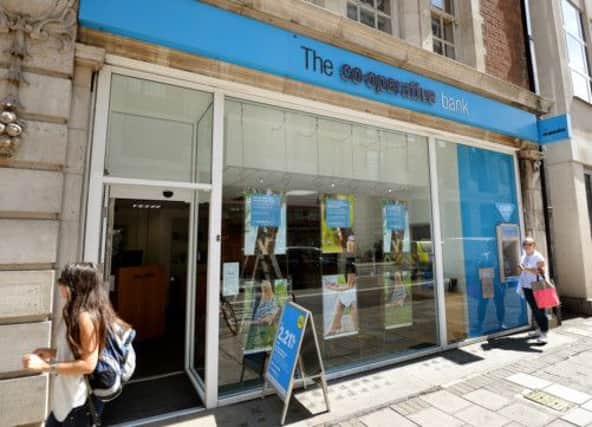Co-op boss quit ‘after being ignored’ over Lloyds


Neville Richardson told MPs he repeatedly warned Co-operative Group bosses it was taking on far too much and the bank could collapse – before quitting over the issue in July 2011.
Richardson insisted loans acquired with the Britannia Building Society – which he ran before it was acquired by the Co-op in 2009 – are not solely to blame for the bank’s woes.
Advertisement
Hide AdAdvertisement
Hide AdHe said former bosses – including Peter Marks, the group chief executive until May – were determined to do the Lloyds deal, dubbed Project Verde. But he said the Co-op could have been another Northern Rock if the Lloyds deal had gone ahead.
The Co-op Bank last week reported half-year losses of £709.4 million on surging bad debts and a bungled roll-out of a new computer system.
It has to plug a £1.5 billion black hole in its balance sheet at the expense of bondholders, with hundreds of job losses expected. The UK government may still have to step in and rescue the ailing lender.
Richardson told the MPs on the Treasury select committee that he raised his concerns with Marks, chairman Len Wardle and deputy chairman Paul Flowers on a number of occasions in 2010 and 2011. In his first public appearance since quitting, Richardson used parliamentary privilege to break a confidentiality agreement he signed with the Co-op.
Richardson, who received a total payout of £4.6m on leaving the group, said it was “the right deal at the wrong time”.
He said: “The board and chief executive of the Co-op Group at that time did not accept my warnings and were determined to press ahead. That is why I stepped down.” He left by “mutual agreement” in July 2011.
Until late April the Co-op was front-runner to buy the Lloyds branches, which Marks claimed would propel it into the “premier league of UK banking”.
But its ambitions crumbled when shortly after the deal’s collapse the bank was hit by a ratings downgrade. In June it announced plans to plug a capital gap.
Advertisement
Hide AdAdvertisement
Hide AdRichardson said he warned in July 2011 – when the Co-op was still only toying with buying the Lloyds branches – that the group was taking on too much.
He said the Co-op was risking “failure” as it simultaneously attempted the Lloyds deal, a multi-million pound IT overhaul, the sale of its life and savings businesses and a project to fully integrate Co-op Financial Services within the overall group.
He said he told his superiors that the business was “incapable” of coping with all of this change at one time.
“This was increasing the bank from 100 branches to 1,000 branches in less than three years,” he said.
The bank’s recent first-half results showed £496m of impairment charges on soured loans.
But Richardson insisted the Britannia was a success when it was taken over by the Co-op. He added Britannia loan losses only account for a third of the Co-op’s impairments over the past 18 months.
The Co-op has launched an independent probe into what went wrong at the bank, and new management warn its turnaround will take four years.
Sir Christopher Kelly will head an investigation into its acquisition of Britannia and the failed Lloyds deal.